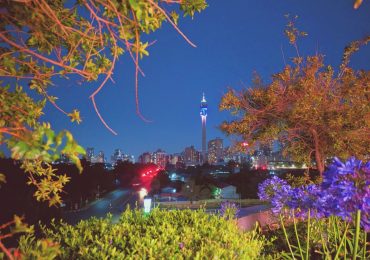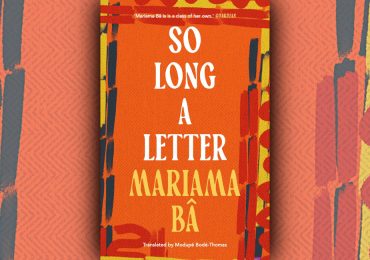The six-book shortlist for the 2020 International Booker Prize has been revealed.
For the second year running, the shortlist is dominated by women.
The announcement was made digitally, in light of the current coronavirus pandemic.
The International Booker Prize celebrates ‘the finest translated fiction from around the world’. It is awarded every year for a single book translated into English and published in the United Kingdom or Ireland. Both novels and short story collections are eligible. The contributions of both the author and translator are given equal recognition, with the two sharing the £50,000 (about R1.1 million) prize money. Each shortlisted author and translator will receive £1,000.
The sole African entry on the longlist this year, Willem Anker’s novel Red Dog, translated from the Afrikaans by Michiel Heyns, has not made the shortlist.
2020 International Booker Prize shortlist
- The Enlightenment of the Greengage Tree by Shokoofeh Azar, translated by Anonymous from Farsi (Europa Editions)
- The Adventures of China Iron by Gabriela Cabezón Cámara, translated by Iona Macintyre and Fiona Mackintosh from Spanish (Charco Press)
- Tyll by Daniel Kehlmann, translated by Ross Benjamin from German (Quercus)
- Hurricane Season by Fernanda Melchor, translated by Sophie Hughes from Spanish (Fitzcarraldo Editions)
- The Memory Police by Yōko Ogawa, translated by Stephen Snyder from Japanese (Harvill Secker)
- The Discomfort of Evening by Marieke Lucas Rijneveld, translated by Michele Hutchison from Dutch (Faber & Faber)
This year’s shortlist features titles translated from five languages: Spanish, German, Dutch, Farsi and Japanese. The shortlisted authors hail from six countries and, according to prize organisers, ‘their books examine humanity’s need to understand the world through narrative, either through sharing our own stories, through understanding our histories and origins, or through processing trauma and grief’.
Notable titles on the shortlist include Hurricane Season by Fernanda Melchor, translated by Sophie Hughes from Spanish, which is made up of just eight paragraphs, and The Discomfort of Evening, the debut novel by Dutch author Marieke Lucas Rijneveld, who at twenty-eight becomes one of the youngest writers to be shortlisted for a Booker prize—just one year older than the youngest ever shortlistee, British author Daisy Johnson, who appeared on the list in 2018.
Daniel Kehlmann’s Tyll is perhaps the most high-profile novel on the list, having sold over 600,000 copies in the author’s native Germany, being currently adapted by Netflix.
Independent publishers— Fitzcarraldo, Charco Press, Europa and Faber & Faber—dominate the list, representing four out of the six books.
The shortlist was chosen by a panel of five judges, chaired by Ted Hodgkinson, Head of Literature and Spoken Word at Southbank Centre in London. The panel also includes: Lucie Campos, director of the Villa Gillet, France’s centre for international writing; Man Booker International Prize-winning translator and writer Jennifer Croft; Booker Prize-longlisted author Valeria Luiselli and writer, poet and musician Jeet Thayil, whose novel Narcopolis was shortlisted for the Man Booker Prize in 2012.
Hodgkinson says:
‘Each of our shortlisted books restlessly reinvents received narratives, from foundational myths to family folklore, plunging us into discomforting and elating encounters with selves in a state of transition.
‘Whether capturing a deftly imagined dystopia or incandescent flows of language, these are tremendous feats of translation, which in these isolating times, represent the pinnacle of an art-form rooted in dialogue. Our shortlist transcends this unprecedented moment, immersing us in expansively imagined lives that hold enduring fascination.’
From the International Booker Prize:
Three of the novels, The Enlightenment of the Greengage Tree by Shokoofeh Azar, The Adventures of China Iron by Gabriela Cabezón Cámara and Tyll by Daniel Kehlmann have been inspired by their nations’ histories—namely the 1979 Islamic Revolution in Iran, gaucho culture in eighteen-seventies Argentina, and the Thirty Years’ War in Germany. Each of these books borrows existing myths, legends and origin stories but reinterprets these tales with modern sensibilities, celebrating the pursuit of intellectual freedom, the exploration of sexual identity, and survival in the face of political unrest and sweeping illness.
The other three shortlisted titles, Hurricane Season by Fernanda Melchor, The Memory Police by Yoko Ogawa and The Discomfort of Evening by Marieke Lucas Rijneveld all touch on how trauma, whether through violent acts or emotional loss, shape our experiences and approach to the world. Fernanda Melchor’s Hurricane Season opens with the gruesome discovery of a murder victim, but the novel’s narrative drive quickly shifts to asking, ‘Why?’ rather than ‘Who?’ and through the characters’ stories we are introduced to a world governed by poverty and violence, misogyny, and prejudice. In The Memory Police, Yoko Ogawa explores the power of memory, and how much our memories define us, and the trauma of loss. Loss is also a central theme of Marieke Lucas Rijneveld’s The Discomfort of Evening, a story that recounts the breakdown of a devout family after the untimely death of one of their children.
Previous winners of the International Booker Prize include Korean bestseller Han Kang and Polish Nobel laureate Olga Tokarczuk. Last year’s award was won by Celestial Bodies by Omani novelist Jokha Alharthi, translated by Marilyn Booth.





